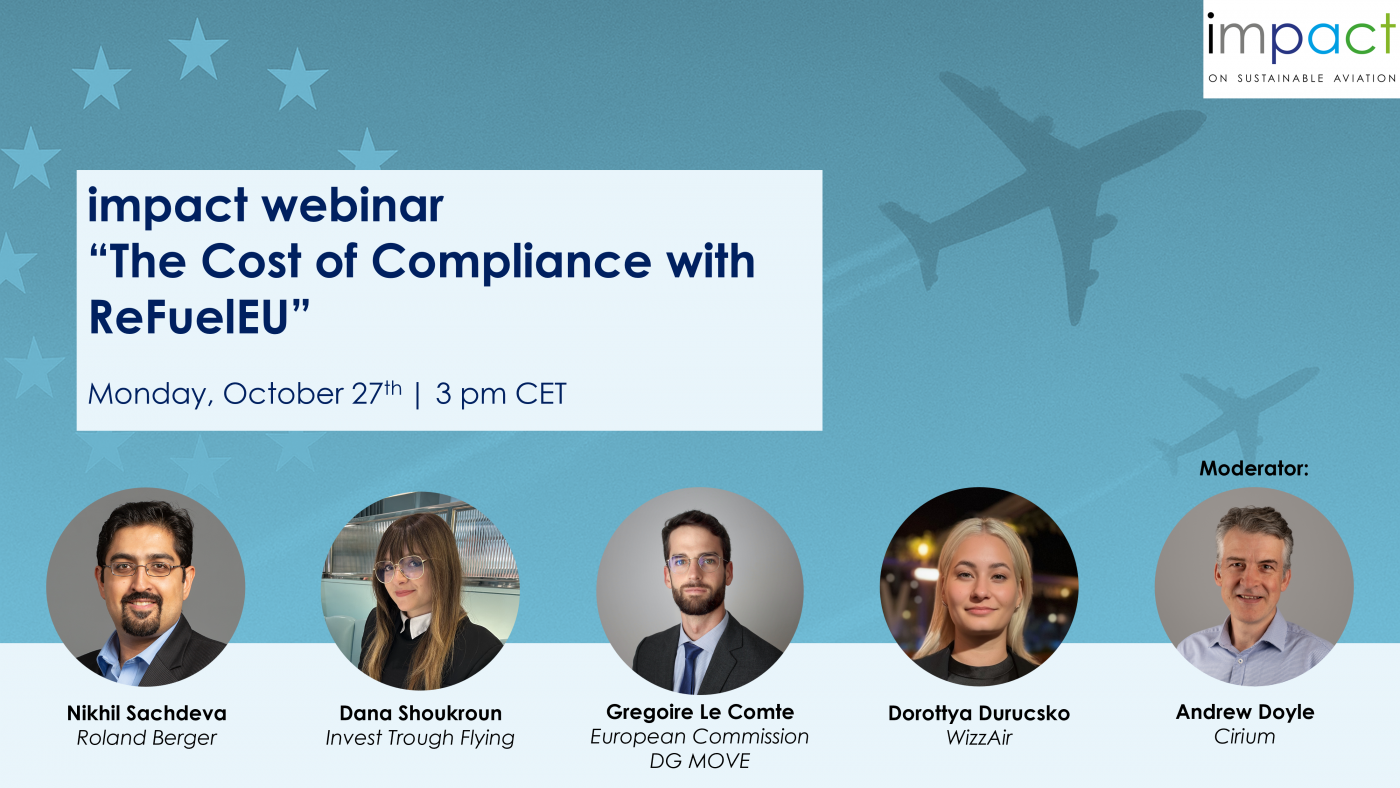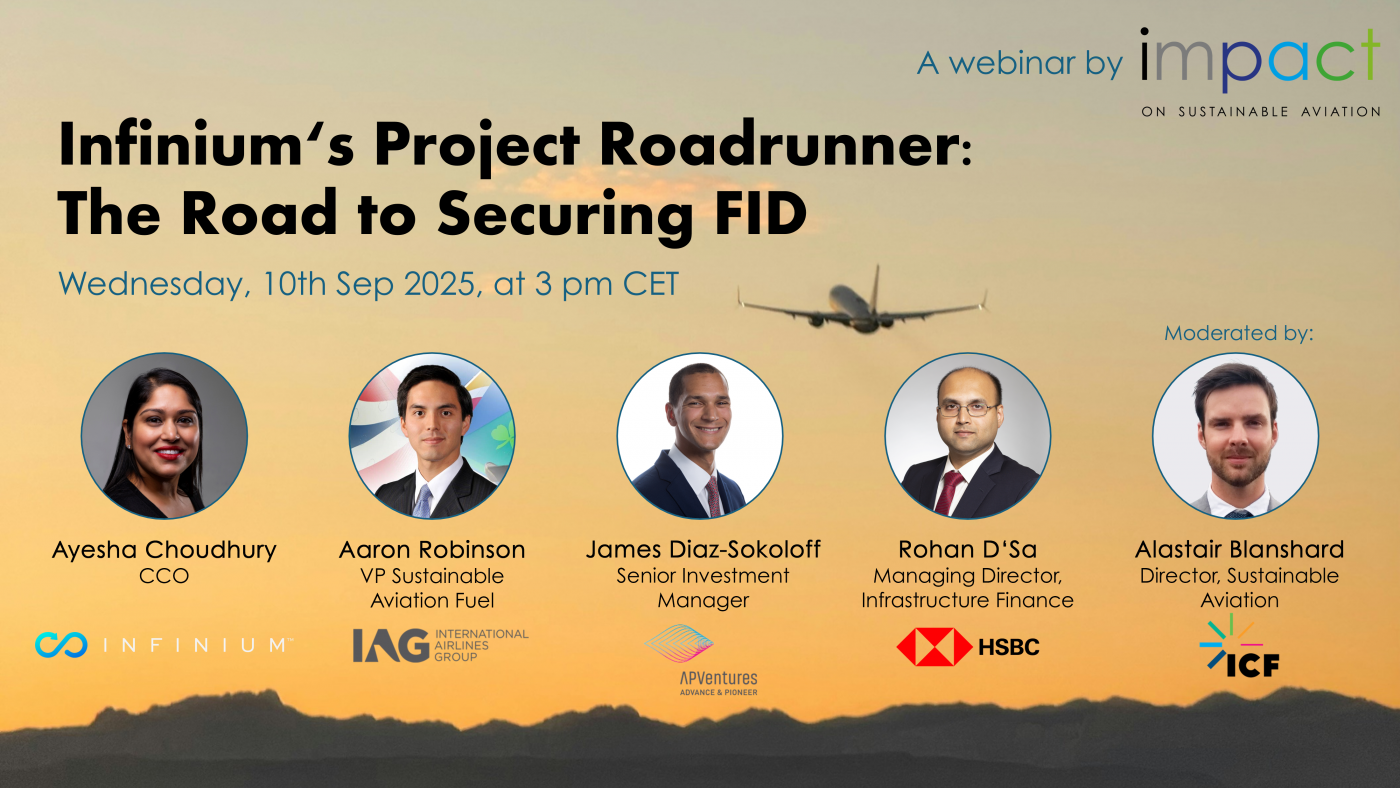Sustainable Aviation Fuel (SAF) is often described as “too expensive.” But what really drives this perception? In our upcoming webinar, The Cost of Compliance, we will unpack the true cost elements behind SAF and explore how greater clarity can shape investor confidence, airline appetite, and financing conditions.
Moderated by Andrew Doyle (Cirium), the expert round will feature a dynamic exchange of views from across the aviation value chain. Speakers include Dana Shoukroun (Invest Through Flying), Nikhil Sachdeva (Roland Berger), Dorottya Durucsko (Wizz Air), and Gregoire Le Comte (European Commission, DG MOVE).
Topics include:
- Breaking down the “SAF premium”: what it is, how it impacts airlines, and the degree of transparency or negotiability in supplier pricing.
- Mechanisms to narrow the price gap – from long-term offtakes and pooling to subsidies and market incentives.
- The role of transparency in improving bankability, financing terms, and long-term contracting.
- How EU SAF allowances can support offtakers, including eligibility criteria and procedures for allocation and pay-out.
Join us for a deep dive into the economics of SAF and what they mean for airlines, suppliers, and financiers navigating the path to compliance.
To request the recording please contact ziegler@impact-on-sustainable-aviation.org.



